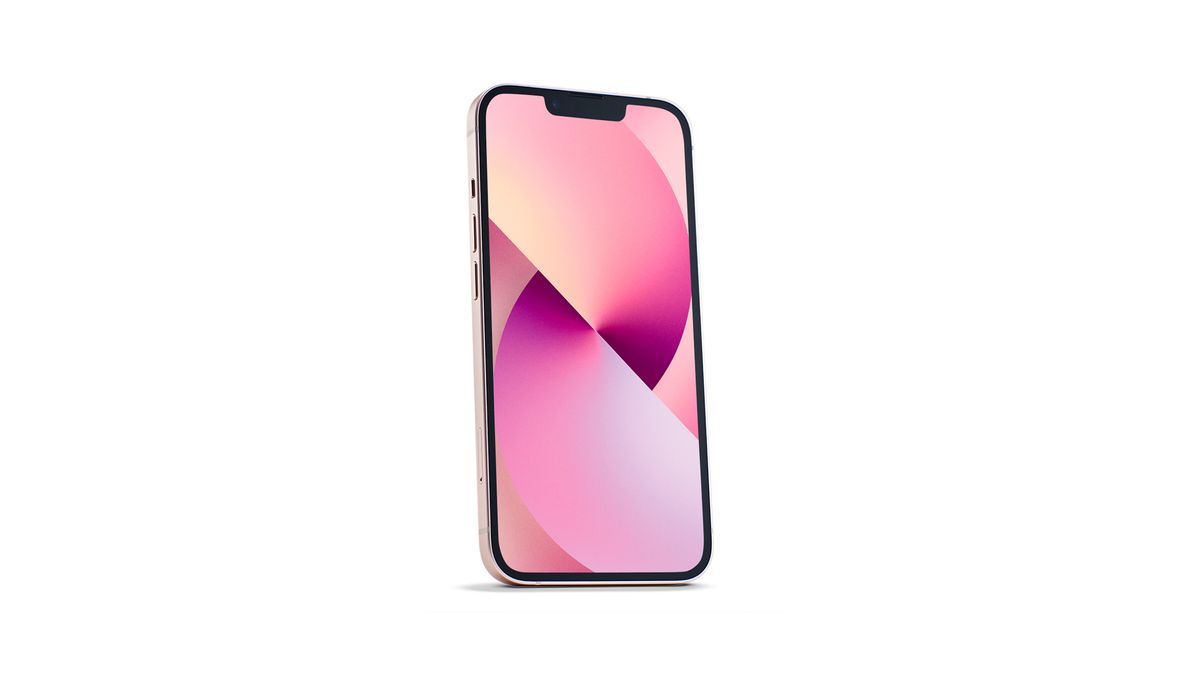What Hi-Fi? Verdict
A sprinkling of improvements combined with excellent picture and sound quality make the standard iPhone 13 a top smartphone at the money
Pros
- +
Excellent build
- +
Slick operating system
- +
Excellent picture and sound
Cons
- -
No charger in the box
- -
No headphones in the box
Why you can trust What Hi-Fi?
Another year, another iPhone model. This time it’s the turn of iPhone 13 to take centre stage and attempt to convince us it’s the greatest iPhone since, well, the last one.
It’s got a big job on its hands to be fair. The previous generation brought some significant changes including a revamped design, new processor and new OLED screen. So all those things are already in place with the iPhone 13, but has Apple managed to move the game on yet again, or is this more akin to a mildly tweaked ‘S’ model of the kind we’ve seen in the past?
Price
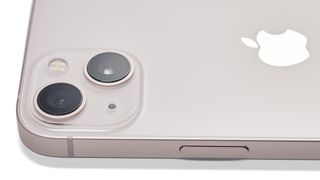
The first bit of good news regards the price. Those of you expecting the iPhone 13 to be more expensive than the previous model might be surprised to learn that there’s been no price hike.
In fact, prospective UK buyers will be delighted to know that the iPhone 13 is £20 cheaper than the equivalent iPhone 12 was at launch, across all storage sizes. So, the iPhone 13 costs £779 / $799 / AU$1349 for the 128GB version, £879 / $899 / AU$1869 for the 256GB version and £1079 / $1099 / AU$1869 for the 512GB version. 1TB of storage is only an option for the iPhone 13 Pro and Pro Max models.
Design
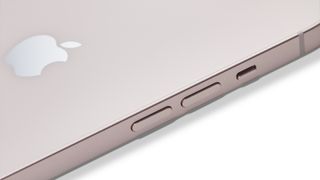
While Apple claims that the iPhone 13 has been “redesigned on the inside and out”, at first glance the untrained eye might struggle to spot any major differences.
After all, the iPhone 13 looks and feels very similar to its predecessor. Build quality is superb, as we’ve come to expect from the tech giant. The aluminium frame feels robust, while the smooth, flat edges give the phone plenty of purchase when it’s sat in the palm of your hand. It’s a nice thing to hold and it feels as though it’s going to deliver a premium smartphone experience.
Compare new and old by looking along the edges and you will notice that the ring/silent switch, volume controls and power button have all been shifted along ever so slightly.
But the biggest and most obvious change is the presence of a new camera layout on the rear of the iPhone 13. The stacked arrangement on the older model has been replaced by a larger, diagonal set-up on the new phone. But more on that later.
The iPhone 13 is available in five new colours: Midnight (black) starlight (white) red, blue and pink.
Features
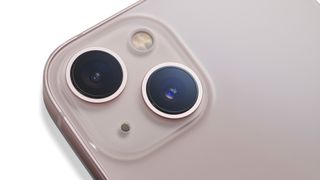
The iPhone 13 includes the debut of a new chip; the A15 Bionic. It's made up of a new six-core CPU and four high-efficiency cores (supposedly making it 50 per cent faster than the competition). The new GPU is reportedly 30 per cent faster than rivals, and a new 16-core Neural Engine means that machine learning skills have been given a boost too. The knock on effect of this is that Apple’s been able to unlock new iOS 15 features such as Live Text in Camera and a new 3D Maps navigation feature.
In practice, you get the same speedy and slick user experience that we’ve come to expect from Apple devices. We wouldn’t say the difference in speed when performing general tasks such as opening and closing apps and navigating around the phone is that noticeable, but boot-up time is certainly quicker (by around seven seconds, if you're wondering).
Not a huge amount has changed on the screen front – the iPhone 13 still has a 6.1-inch Super Retina XDR OLED display that has been toughened by Apple’s Ceramic Shield. But Apple claims it’s more efficient and has hiked maximum brightness by 28 per cent to a claimed 800 nits for SDR and 1200 nits for HDR content. Screen resolution is 2532 x 1170 pixels with a pixel density of 460 ppi (pixels per inch). As before, it’s a True Tone display that supports Wide Colour.
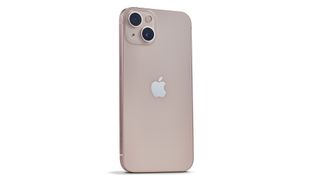
Screen size 6.1-inch
Type OLED
Resolution 2532 x 1170
Operating system iOS 15
Finishes x5
Battery life 19hrs video, 75hrs audio
Dimensions (hwd) 147 x 72 x 7.7mm
Weight 173g
Capacity 128GB, 256GB, 512GB
Unlike the pricier iPhone 13 Pro and Max, the iPhone 13’s screen has to make do with a 60Hz refresh rate – it’s only the more expensive models that get to enjoy a 120Hz display.
If you were hoping the arrival of the iPhone 13 would spell the end of the notch, you’re going to be disappointed. It’s still there, but it's now a slightly different shape (thinner but also taller) and is marginally less distracting than before.
Arguably the biggest change relates to the iPhone 13 camera. It now uses what Apple claims is its “most advanced dual-camera system”. The new Wide camera features the biggest sensor to ever be placed in such a system and it’s claimed to allow in 47 per cent more light. The sensor shift OIS (optical image stabilisation) that was introduced on the iPhone 12 Pro Max has also been integrated into the iPhone 13’s new Wide camera.
And what you get is a camera that’s more than capable of being used as a daily snapper. Colours are nicely judged and there’s impressive sharpness and definition to shots captured. Night-time pics do look better than those taken with the previous generation iPhone, thanks to a greater overall level of insight with extra lashings of low-light detail.
Should you want to switch from taking photos to recording video on the iPhone 13, there’s support for 4K HDR with Dolby Vision up to 60fps.
Battery life is obviously a big deal with any flagship smartphone, and the iPhone always comes under intense scrutiny in this department. Apple says it's given the iPhone 13 a significantly bigger battery, and we're pleased to report it translates into a welcome boost. Apple claims the iPhone 13 delivers all-day battery life and that it should last two and a half hours longer than the iPhone 12. In testing it does seem to squeeze more life out of a full charge, with top-ups being required a little less frequently.
Picture quality
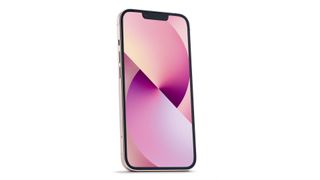
Given the iPhone 13’s new specs for screen brightness, do you notice any difference streaming video content on iPhone 13? You do, but it’s very subtle.
Whites do appear a tiny bit punchier and more potent. Playing the opening episode of Season 3 of Stranger Things, as the scientists fire up the machine they're using to try and prise open the Upside Down it bursts into life with bright bolts of electricity coursing through its components.
Its main beam bursts with intense energy and you can almost feel the heat coming off the screen. This added brightness doesn’t sacrifice detail in whiter elements of the picture, though. The contrast between bright and dark areas of the screen is still very impressive as the machine’s pulsing white light helps give a glimpse of the darker recesses of the Russian laboratory. OLED’s inherent strengths help here too, obviously, with deep, rich blacks and amazing clarity that just draws you in.
Watching a range of content on Netflix and Disney Plus (in both standard dynamic range and HDR), we notice the iPhone 13’s colour temperature appears a tiny bit cooler than its predecessor's. Colours are still superbly judged, though. Play Spider-Man And His Amazing Friends and the iPhone 13 delivers vibrancy without appearing overblown. Spidey's colourful suits pop out of the screen, motion is solid and edges are crisply drawn. Switch to a series with a more natural palette, such as Only Murders In The Building, and the iPhone 13 applies convincing and believable skin tones and textures to Martin Short, Steve Martin and Selena Gomez.
Sound quality
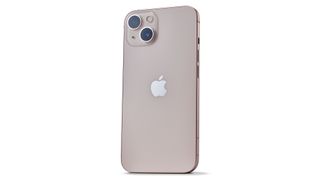
There’s been no change to the iPhone 13’s speaker arrangement, so you won’t be surprised to learn that it sounds just as good as its predecessor. The internal speakers cope fine with most things sent their way thanks to their even-handed approach. There’s a decent amount of detail and clarity – just don’t expect much in the way of hefty bass.
If you’re going to be listening for any length of time, we’d obviously recommend connecting the iPhone 13 to the best wireless headphones you can afford (or a pair of wired headphones if you own a 3.5mm to Lightning dongle).
Apple’s got quite a reputation for creating musical, entertaining smartphones, and the iPhone 13 once again falls into that category. Throw any genre its way and the phone just makes it interesting to listen to. It’s a dab hand with timing and sticking to the rhythm of a track. It sounds excited and dynamic, stampeding along to a quick blast of Mombassa from the Inception soundtrack. The iPhone 13 conveys a real sense of weight, drive and power and you’re left in no doubt as to the drama that unfolds in the corresponding film scene.
The iPhone 13 is also capable of communicating subtlety and restraint. When dealing with the slower pace and greater delicacy of Billie Eilish’s No Time To Die the iPhone dims its spotlight to match the emotion and low-level dynamics of the track. Details such as the echo around each piano stroke are explicit, as is Billie’s minimalist vocal. Then the strings heighten the track’s dynamic ceiling, making for a rousing finale.
Verdict
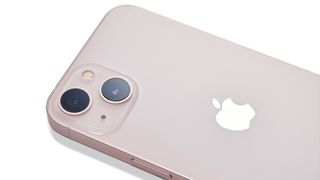
Love or hate Apple, the tech giant does know how to make a smartphone and the iPhone 13 is the latest in a very long line of excellent offerings. It’s not a massive leap on from the iPhone 12, but it does address areas that some will say needed attention – the camera quality and battery life, for example.
Add to this a minor improvement in screen quality, one of the most musical performances you can get from a smartphone and an excellent user experience, and the iPhone 13 is undoubtedly worthy of five-star status.
SCORES
- Screen 5
- Sound 5
- Features 4
MORE:
Prefer last year's model? See our Apple iPhone 12 review
Want to go Android? Check out our Samsung Galaxy S21 review
Alternatively, read our OnePlus 9 review
The best smartphones for music and movies
What Hi-Fi?, founded in 1976, is the world's leading independent guide to buying and owning hi-fi and home entertainment products. Our comprehensive tests help you buy the very best for your money, with our advice sections giving you step-by-step information on how to get even more from your music and movies. Everything is tested by our dedicated team of in-house reviewers in our custom-built test rooms in London, Reading and Bath. Our coveted five-star rating and Awards are recognised all over the world as the ultimate seal of approval, so you can buy with absolute confidence.
-
scott_la The performance and battery backup is way more effective than 12 series. The issues I gone through is that the minute numerous hairline scratches occured in my iPhone 13 pro since I made a mistake of letting it as it was. Now I had to invest in screen protector from gadgetshieldz to cover it up and also to protect it from further scratches.Reply
